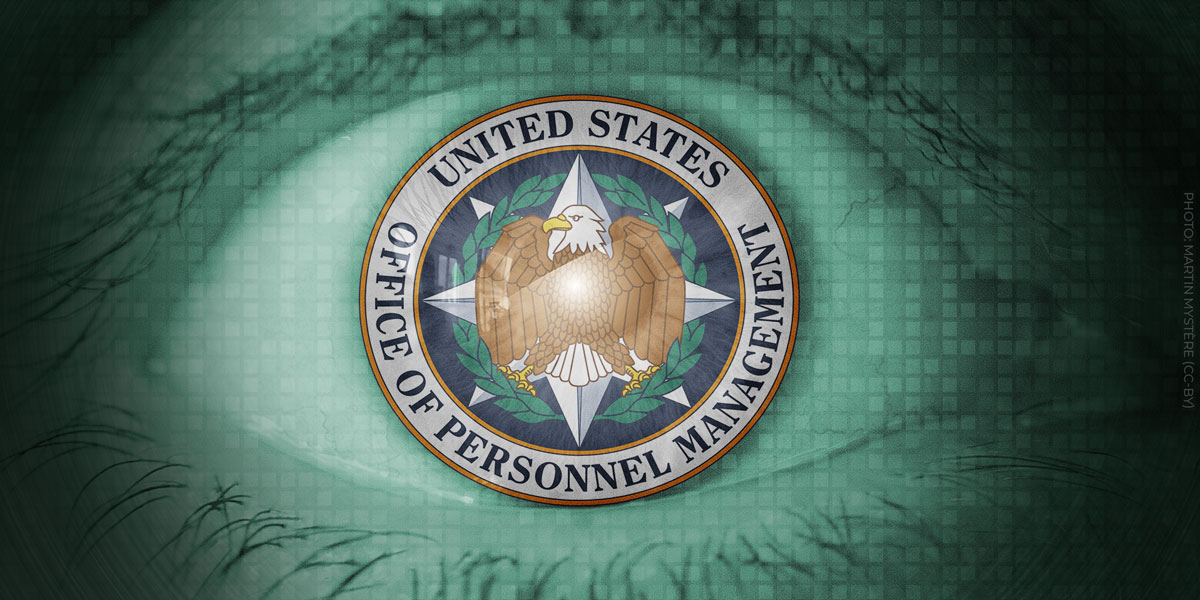EFF and a coalition of privacy defenders have filed a lawsuit today asking a federal court to block Elon Musk’s Department of Government Efficiency (DOGE) from accessing the private information of millions of Americans that is stored by the Office of Personnel Management (OPM), and to delete any data that has been collected or removed from databases thus far. The lawsuit also names OPM, and asks the court to block OPM from sharing further data with DOGE.
The Plaintiffs who have stepped forward to bring this lawsuit include individual federal employees as well as multiple employee unions, including the American Federation of Government Employees and the Association of Administrative Law Judges.
This brazen ransacking of Americans’ sensitive data is unheard of in scale. With our co-counsel Lex Lumina, State Democracy Defenders Fund, and the Chandra Law Firm, we represent current and former federal employees whose privacy has been violated. We are asking the court for a temporary restraining order to immediately cease this dangerous and illegal intrusion. This massive trove of information includes private demographic data and work histories of essentially all current and former federal employees and contractors as well as federal job applicants. Access is restricted by the federal Privacy Act of 1974. Last week, a federal judge temporarily blocked DOGE from accessing a critical Treasury payment system under a similar lawsuit.
The mishandling of this information could lead to such significant and varied abuses that they are impossible to detail.
What’s in OPM’s Databases?
The data housed by OPM is extraordinarily sensitive for several reasons. The federal government is the nation’s largest employer, and OPM’s records are one of the largest, if not the largest, collection of employee data in the country. In addition to personally identifiable information such as names, social security numbers, and demographics, it includes work experience, union activities, salaries, performance, and demotions; health information like life insurance and health benefits; financial information like death benefit designations and savings programs; and classified information nondisclosure agreements. It holds records for millions of federal workers and millions more Americans who have applied for federal jobs.
The mishandling of this information could lead to such significant and varied abuses that they are impossible to detail. On its own, DOGE’s unchecked access puts the safety of all federal employees at risk of everything from privacy violations to political pressure to blackmail to targeted attacks. Last year, Elon Musk publicly disclosed the names of specific government employees whose jobs he claimed he would cut before he had access to the system. He has also targeted at least one former employee of Twitter. With unrestricted access to OPM data, and with his ownership of the social media platform X, federal employees are at serious risk.
And that’s just the danger from disclosure of the data on individuals. OPM’s records could give an overview of various functions of entire government agencies and branches. Regardless of intention, the law makes it clear that this data is carefully protected and cannot be shared indiscriminately.
In late January, OPM reportedly sent about two million federal employees its “Fork in the Road” form email introducing a “deferred resignation” program. This is a visible way in which the data could be used; OPMs databases contain the email addresses for every federal employee.
How the Privacy Act Protects Americans’ Data
Under the Privacy Act of 1974, disclosure of government records about individuals generally requires the written consent of the individual whose data is being shared, with few exceptions.
Congress passed the Privacy Act in response to a crisis of confidence in the government as a result of scandals including Watergate and the FBI’s Counter Intelligence Program (COINTELPRO). The Privacy Act, like the Foreign Intelligence Surveillance Act of 1978, was created at a time when the government was compiling massive databases of records on ordinary citizens and had minimal restrictions on sharing them, often with erroneous information and in some cases for retaliatory purposes.
These protections were created the last time Congress rose to the occasion of limiting the surveillance powers of an out-of-control President.
Congress was also concerned with the potential for abuse presented by the increasing use of electronic records and the use of identifiers such as social security numbers, both of which made it easier to combine individual records housed by various agencies and to share that information. In addition to protecting our private data from disclosure to others, the Privacy Act, along with the Freedom of Information Act, also allows us to find out what information is stored about us by the government. The Privacy Act includes a private right of action, giving ordinary people the right to decide for themselves whether to bring a lawsuit to enforce their statutory privacy rights, rather than relying on government agencies or officials.
It is no coincidence that these protections were created the last time Congress rose to the occasion of limiting the surveillance powers of an out-of-control President. That was fifty years ago; the potential impact of leaking this government information, representing the private lives of millions, is now even more serious. DOGE and OPM are violating Americans’ most fundamental privacy rights at an almost unheard-of scale.
OPM’s Data Has Been Under Assault Before
Ten years ago, OPM announced that it had been the target of two data breaches. Over twenty-million security clearance records—information on anyone who had undergone a federal employment background check, including their relatives and references—were reportedly stolen by state-sponsored attackers working for the Chinese government. At the time, it was considered one of the most potentially damaging breaches in government history.
DOGE employees likely have access to significantly more data than this. Just as an example, the OPM databases also include personal information for anyone who applied to a federal job through USAJobs.gov—24.5 million people last year. Make no mistake: this is, in many ways, a worse breach than what occurred in 2014. DOGE has access to ten more years of data; it likely includes what was breached before, as well as significantly more sensitive data. (This is not to mention that while DOGE has access to these databases, they reportedly have the ability to not only export records, but to add them, modify them, or delete them.) Every day that DOGE maintains its current level of access, more risks mount.
EFF Fights for Privacy
EFF has fought to protect privacy for nearly thirty-five years at the local, state, and federal level, as well as around the world.
We have been at the forefront of exposing government surveillance and invasions of privacy: In 2006, we sued AT&T on behalf of its customers for violating privacy law by collaborating with the NSA in the massive, illegal program to wiretap and data-mine Americans’ communications. We also filed suit against the NSA in 2008; both cases arose from surveillance that the U.S. government initiated in the aftermath of 9/11. In addition to leading or serving as co-counsel in lawsuits, such as in our ongoing case against Sacramento’s public utility company for sharing customer data with police, EFF has filed amicus briefs in hundreds of cases to protect privacy, free speech, and creativity.
EFF’s fight for privacy spans advocacy and technology, as well: Our free browser extension, Privacy Badger, protects millions of individuals from invasive spying by third-party advertisers. Another browser extension, HTTPS Everywhere, alongside Certbot, a tool that makes it easy to install free HTTPS certificates for websites, helped secure the web, which has now largely switched from non-secure HTTP to the more secure HTTPS protocol.
EFF is glad to join the brigade of lawsuits to protect this critical information.
EFF also fights to improve privacy protections by advancing strong laws, such as the California Electronic Communications Privacy Act (CalECPA) in 2015, which requires state law enforcement to get a warrant before they can access electronic information about who we are, where we go, who we know, and what we do. We also have a long, successful history of pushing companies, as well, to protect user privacy, from Apple to Amazon.
What’s Next
The question is not “what happens if this data falls into the wrong hands.” The data has already fallen into the wrong hands, according to the law, and it must be safeguarded immediately. Violations of Americans’ privacy have played out across multiple agencies, without oversight or safeguards, and EFF is glad to join the brigade of lawsuits to protect this critical information. Our case is fairly simple: OPM’s data is extraordinarily sensitive, OPM gave it to DOGE, and this violates the Privacy Act. We are asking the court to block any further data sharing and to demand that DOGE immediately destroy any and all copies of downloaded material.
You can view the press release for this case here.



